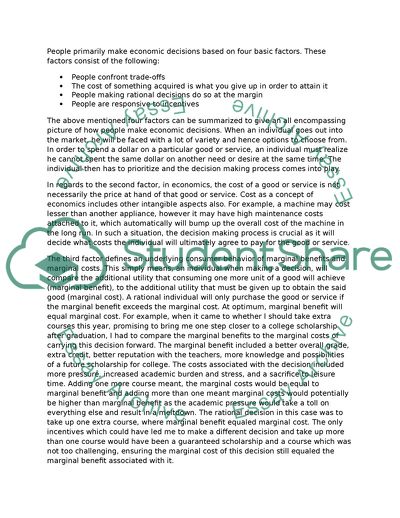How People Make Economic Decisions Paper Essay Example | Topics and Well Written Essays - 500 words. https://studentshare.org/macro-microeconomics/1800895-how-people-make-economic-decisions-paper
How People Make Economic Decisions Paper Essay Example | Topics and Well Written Essays - 500 Words. https://studentshare.org/macro-microeconomics/1800895-how-people-make-economic-decisions-paper.


